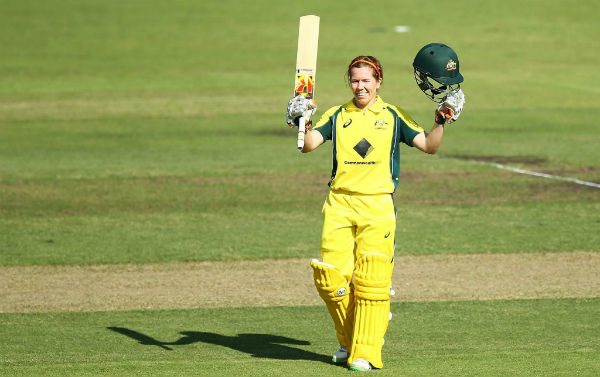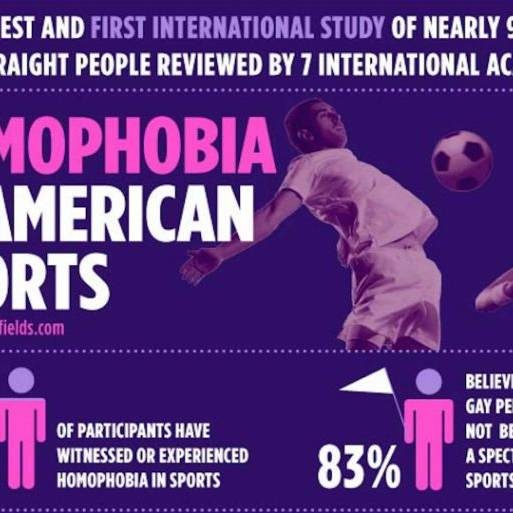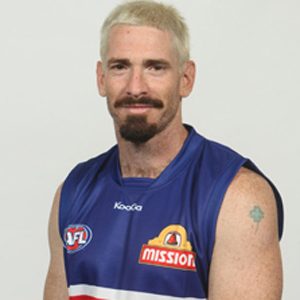
You can take part in a new international study on the challenges facing LGBT athletes
The recent news of a gay slur being chanted by Mexico fans at the 2014 Men’s World Cup in Brazil is a perfect example of how homophobia still exists in sports.
Thankfully, an international study called, “Out on the Fields” has recently been enacted by the 2014 Bingham Cup Sydney (Cricket) and is currently being distributed worldwide. It is the first broad-based Australian and international study on the issue of homophobia in sports, ever. Participation is open to everyone regardless of sexuality. Among other things, the study looks at whether people choose not to play team sports because of fear of discrimination as well as the prevalence of homophobia, such as slurs, among athletes and fans.
Alex Blackwell, Australia’s World Cup Cricket All-Star, is speaking out about the importance of the study. She has also recorded a video (see below), encouraging people to spend a mere 10 minutes to tell their story in the first national and international study on homophobia in sport.
“The first thing we need to do is understand the issue,” says Blackwell, which is one of the main goals of the study. “It will quantify and qualify what the experience of homophobia is for athletes, providing real evidence and information to develop very solid solutions. As a gay athlete, I feel encouraged that there’s a lot more attention around this issue now.”
Dr. Caroline Symons, a professor at Melbourne’s Victoria University and internationally respected for her research on homophobia in sports, is one of the seven experts from around the world advising and helping to review the study results. “Homophobia presents a challenge and potential barrier for the participation of women athletes in sports,” she says. “Past research, which was mostly qualitative, shows that girls and women, broadly speaking, experience the negative effects of homophobia whilst involved in sports.”
According to Symons, the survey is important because it allows researchers to hear and focus on women’s perspectives. “There are huge numbers of women in sports,” she says, “but they are generally under-represented, poorly recognized and under-resourced compared to their male counterparts. Lesbians, in particular, are often invisible in the sporting culture and they need to be heard. Hopefully, the sample size of the survey will be large and the national comparative nature of the survey will also produce unique and important findings.”
Repucom, a sports research company, is conducting the study pro-bono. Researchers at six different universities from around the world will review the results and final reports. The Australian Sports Commission will conduct similar research on homophobia in future years using the current survey as the baseline.
The universities involved are Victoria University (Melbourne), Pennsylvania State University, University of Massachusetts, Laval University (Canada), University of Winnipeg (Canada) and Brunel University (London).
Those interested in taking part in the study can visit www.outonthefields.com for more information.


